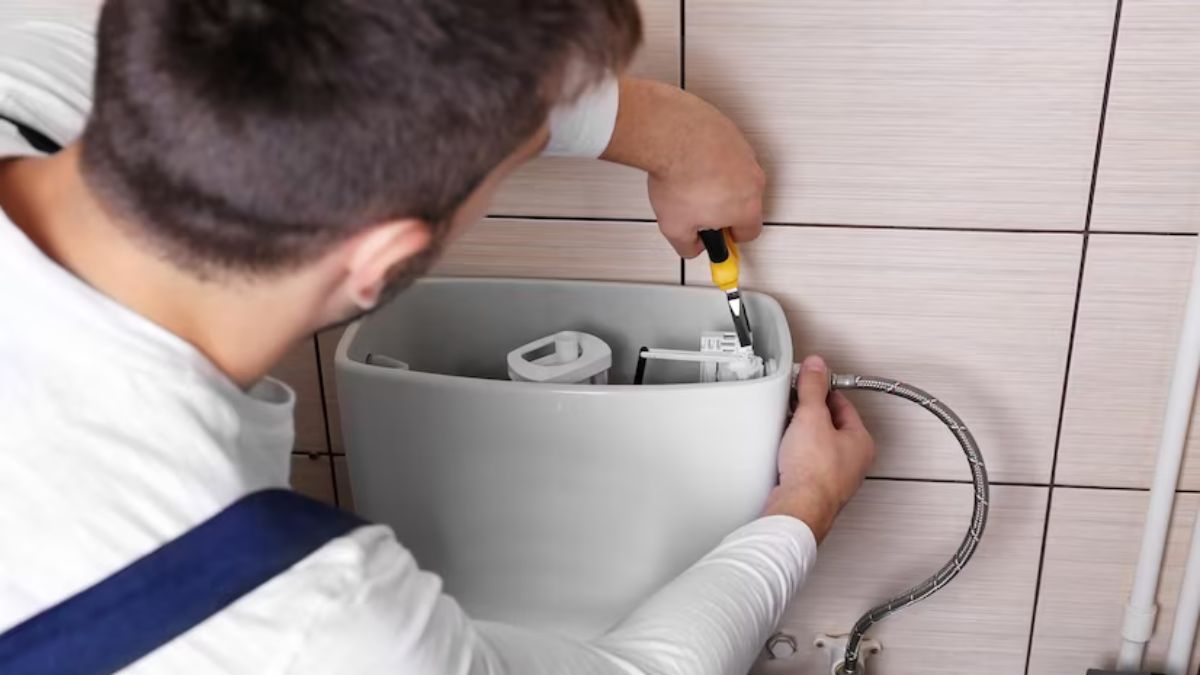Drain cleaning should be conducted regularly to prevent build-up from becoming an emergency clog and to maintain the efficiency and longevity of drain pipes.
Here’s how often you should get your drains cleaned and inspected.
Need to have your drains cleaned and inspected? Check out recommendations from PlumbTech for the best maintenance schedule.
Signs of a clogged drain
Here are some key signs that your drains need attention.
Slow draining
One of the most obvious indicators of drain issues is when water begins to drain more slowly than usual. This slow draining can occur in any sink, tub, or shower and is often the result of a build-up of hair, soap, and other debris in the pipes. If you notice water pooling and taking longer to disappear, it’s likely time for a closer inspection.
Foul odors
A foul odor emanating from your drains can also signify a blockage. This unpleasant smell is often caused by food particles, grease, or other organic matter that has accumulated and started to decompose within the plumbing system.
If you notice persistent bad smells, it’s important to have your drains inspected and cleaned to avoid more serious plumbing issues.
Water backing up
When water starts backing up out of a sink or bathtub drain, it’s a clear signal that a clog is present. It’s important to address these backups promptly, as they can lead to more extensive water damage if left untreated.
This kind of issue usually requires professional assistance to ensure that the blockage is thoroughly removed and to prevent potential future occurrences.
Frequency of drain cleaning and inspection
It is generally recommended to have your drains professionally cleaned and inspected at least once a year. However, this can vary depending on the age of your pipes, your household size, and how heavily your system is used.
Homes with older plumbing systems or larger families may benefit from more frequent inspections and cleanings, possibly every six months.
Factors to consider
- Usage: Higher usage increases the likelihood of clogs and other issues.
- Pipe material: Older materials or corrosive pipes may require additional care.
- Tree roots: Properties with extensive tree root systems may need more regular maintenance.
- Types of waste: Homes that dispose of grease or food scraps through the drain may require more frequent cleanings.
- Previous plumbing history: If you’ve had recurring clog issues, consider more frequent checks.
Remember, preventive maintenance can often save you from the inconvenience and cost of major plumbing emergencies.
Consistency is key
Regular drain cleaning and inspection are essential for maintaining the functionality of your plumbing system. Pay attention to signs of clogs and odors, and consider factors that may influence how often you need professional maintenance.
By following recommended schedules and practicing good drain habits, you can ensure that your drains stay clear and trouble-free for years to come.
Staying on top of regular cleanings can prevent major problems down the line and keep your drains running smoothly. Remember to consult with a reliable plumber to determine the best cleaning and inspection schedule for your specific needs.











